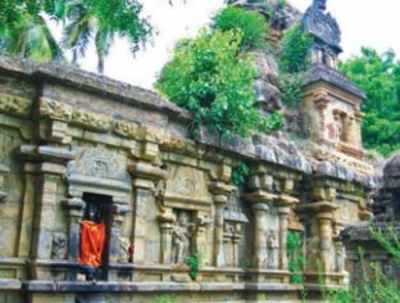States seeing temple funds as "cookie jars", raided for all purposes through HRCE laws: Plea before SC seeks Uniform Code for Religious & Charitable Endowments

A petition filed before the Supreme Court has raising questions about various Hindu Religious and Charitable Endowments (HRCE) laws operating in different states across India, has alleged that "states have used the precedent of Tamil Nadu to pass HRCE Acts, seeing temple funds as cookie jars, (which) they can raid for all and sundry purposes."
Raising questions about equal treatment of temples, gurudwaras at par with mosques, churches etc, the plea filed by petitioner Ashwini Upadhyay asks whether a secular state can make laws to abridge rights of Hindus, Jains, Buddhists, Sikhs guaranteed under Article 26 of Constitution of India, whether the Religious and Chaitable Endowments laws enacted under Article 26 must be in conformity with Articles 14, 15, and whether state laws which discriminate against temples, gurudwaras, mosques and churces are contrary to Articles 14, 15 and 26.
Basis these questions, the plea is seeking direction(s)/order(s)/declaration that Hindus, Jains, Sikhs and Buddhists "have similar rights to establish, manage and maintain their religious places like Muslims, Parsis, Christians" and that "those belonging to these religions have similar rights to own, acquire, administer movable, immovable properties of their religious places like Muslims, Christians and that the State cannot abridge these rights."
The petitioner, Adv. Ashwini Upadhyay also seeks a declaration that laws made to own, acquire, administer movable, immovable properties of temples, gurudwaras, are arbitrary, irrational, and offend Articles 14, 15 and 26 and if necessary, demands that the "Court may direct the Centre or Law Commission to draft a 'Common Charter for Religious and Charitable Institutions' and 'Uniform Code for Religious-Charitable Endowments'.
Referring to the case of the Naganathswamy Temple, the petitioner says that cause of action arose in the matter on Apr 10, 2016 when 1000-year-old Naganathswamy Temple built by King Rajendra Chola in the Thanjavur, Tamil Nadu was "pulled down by the State in the garb of renovation."
Pointing out that State governments are controlling temples and gurudwaras but not mosques and churches the plea says, the "injury to Hindus, Jains, Buddhists and Sikhs is extremely large."
Case Title: Ashwini Kumar Upadhyay v UOI & Ors.
